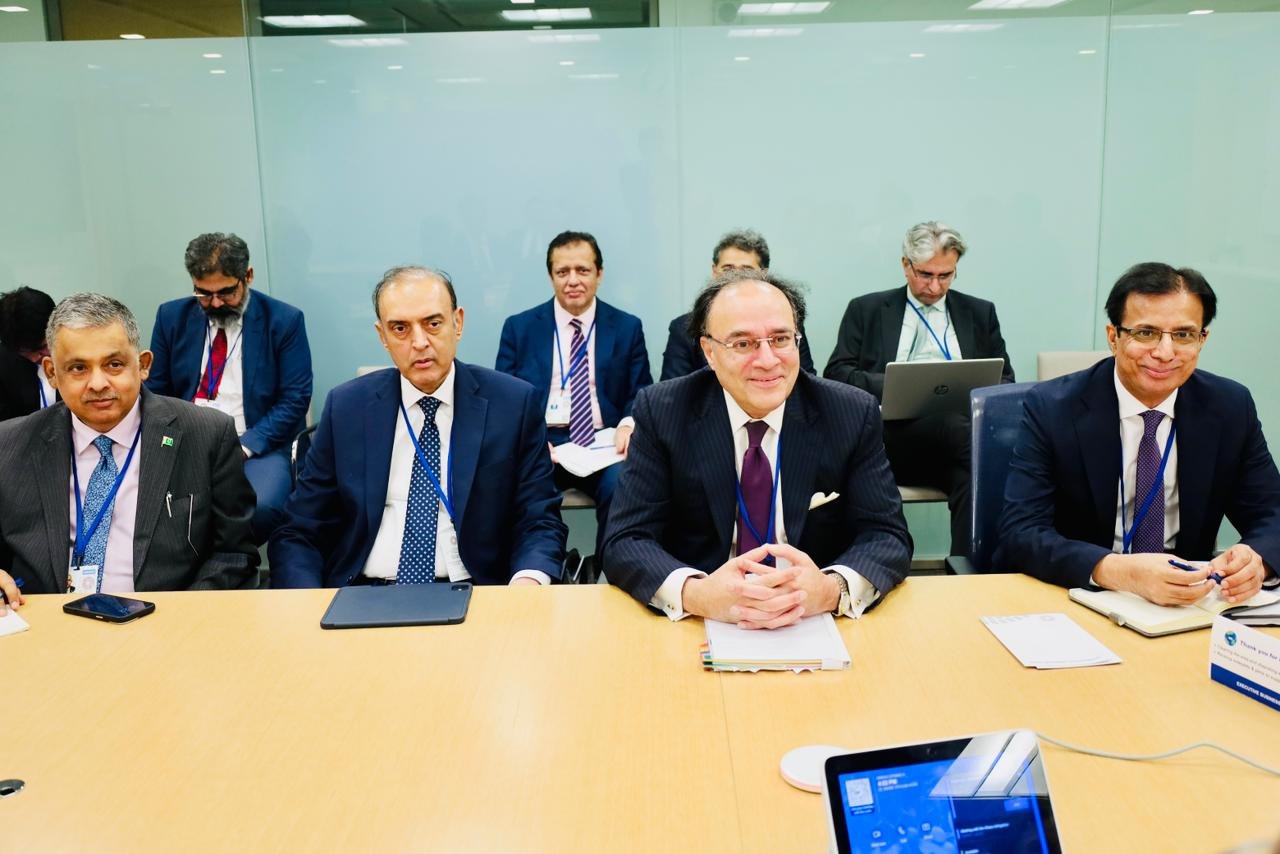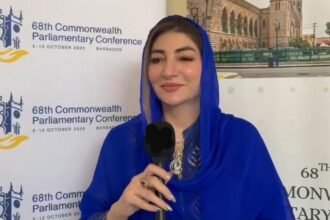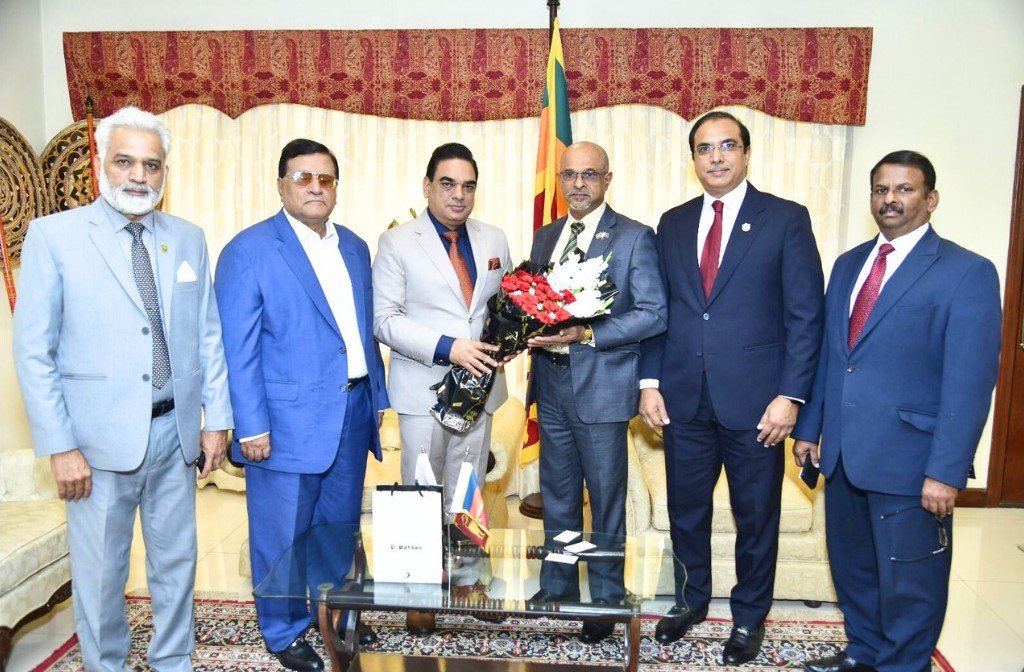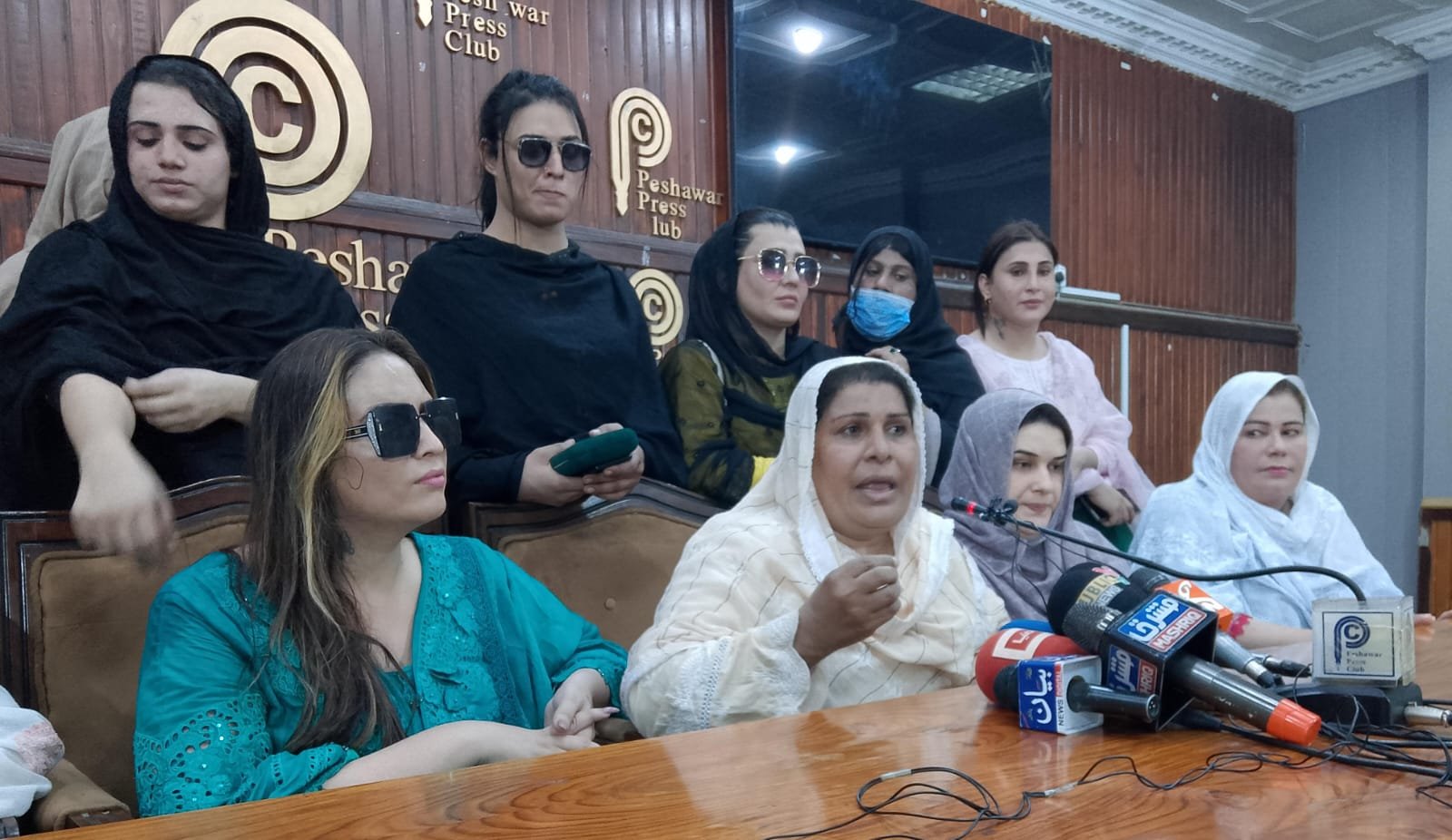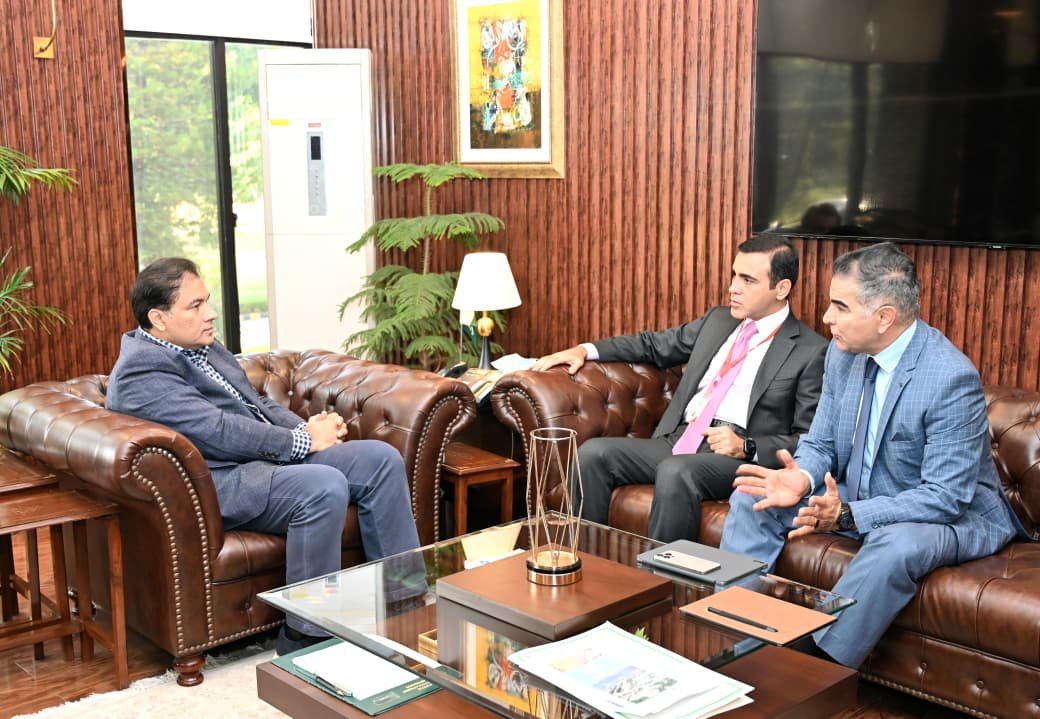Washington D.C. — Federal Minister for Finance and Revenue Senator Muhammad Aurangzeb highlighted the severe challenges Pakistan faces due to the ongoing climate crisis. He began his official U.S. visit with high-level meetings at the Annual IMF and World Bank Group gatherings, focusing on economic reforms, climate resilience, and sustainable development.
During the visit, Minister Aurangzeb met IMF Director Jihad Azour to review Pakistan’s reform agenda. Both sides reaffirmed their commitment to sustaining reform momentum. They also reviewed progress under the Second Review of the Extended Fund Facility (EFF). Additionally, they emphasized the importance of maintaining macroeconomic discipline.
At the Commonwealth Finance Ministers’ Meeting, the Minister stressed concrete steps to build a resilient and prosperous Commonwealth. He highlighted the critical need for climate financing for developing countries. Moreover, he urged the operationalization of mechanisms such as the Loss and Damage Fund.
In discussions with World Bank Senior Managing Director Axel van Trotsenburg, Aurangzeb emphasized the severe impact of recent floods on Pakistan’s agriculture and GDP. He called for increased investment in climate adaptation and mitigation measures while mobilizing resources to manage future natural disasters.
The Finance Minister engaged with the U.S.-Pakistan Business Council (USPBC), showcasing Pakistan’s improving macroeconomic indicators. He highlighted private sector growth as vital for sustaining momentum and reinforced the government’s commitment to resolving business challenges. He discussed trade agreements and potential G2G and B2B collaborations in mining, agriculture, IT, and pharmaceuticals.
Aurangzeb continued his climate crisis Pakistan agenda during meetings with U.S. Treasury officials, Citi Bank representatives, and IFC Regional VP Riccardo Puliti. He welcomed IFC’s new Islamabad office and emphasized financial closure for the Reko Diq project.
He also met Islamic Development Bank President Dr. Muhammad Sulaiman Al-Jasser to review ongoing projects and financing for the M-6 motorway. They discussed polio eradication efforts, oil financing, and the development of a new Country Engagement Framework (CEF) for Pakistan.
These engagements reinforce Pakistan’s commitment to deepening international economic cooperation, strengthening partnerships with global financial institutions, and addressing the climate crisis Pakistan faces. The meetings emphasized sustainable growth, private sector development, and climate resilience.
Read climate-related news here: https://greenpost.com.pk/


